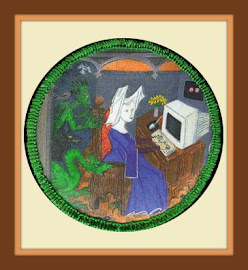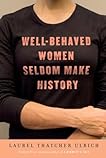 I have gotten away from blogging about books. Between work and kids and house and time with AJ, most of my blogging time has gotten sapped away. I have been doing a fair amount of reading, though, and happily have been on a streak of good reads.
I have gotten away from blogging about books. Between work and kids and house and time with AJ, most of my blogging time has gotten sapped away. I have been doing a fair amount of reading, though, and happily have been on a streak of good reads.
Anyway. I have been enjoying several books that fit in to the Women Unbound Challenge. The Hand that First Held Mine by Maggie O'Farrell wasn't one that I jumped into, thinking it would be a good fit for the challenge. I expected a nice summer novel, which is was, but there were some interesting descriptions of motherhood that made me think (again) about my experiences as a mother compared with how other women experience mothering.
In this novel, O'Farrell deftly weaves together two stories. The first centers on Lexie, a non-traditional woman who literally throws off the conventional life of her parents by leaving home to go make her fortune in post-war London. There she finds work, and also love, and finally she finds a calling as a journalist. She loves what she does, she is good at it, and she makes a life for herself. When she finds herself unexpectedly pregnant, she decides to raise her child on her own terms. She juggles work and the care of her son, and finds herself with a fierce love and connection to her son.
In the second story, set in contemporary London, Elina, an artist, has just given birth to a child. She has barely survived a traumatic birth and is struggling to recover physically at the same time she must care for a newborn. During this same period, Ted, her boyfriend and father of the child, is going through a painful process of remembering snatches of his childhood. He has always had a memory filled with gaps, but now he starts to remember images and voices. Through the course of the story, the mystery of his past unwinds and connects with the Lexie strand to a satisfying conclusion.
The theme that is the same between the stories is the powerful relationship between a mother and her young child. O'Farrell describes the powerful and physical love of both mothers, as well as the strong and almost unthinking intuition that drives them to care for and protect their children. "Elina is on her feet before she's even aware of moving" as she gets up to care for her baby. Ted is amazed at the way that Elina can calm the crying Jonah the way no one else, including him, can. "She has been unprepared for this fierce spring in her, this feeling that isn't covered by the word 'love', which is far too small for it, that sometimes she thinks she might faint with the urgency of her feeling for him, that sometimes she misses him desperately even when he is right there, that it's like a form of madness, of possession, that often she has to creep into the room when he has fallen asleep just to look at him, to check, to whisper to him."
Elina's experience with a newborn is mirrored by Lexie's:
When she leave the house on these mornings, she senses a thread that runs between her and her son, and as she walks away through the streets she is aware of it unspooling, bit by bit. By the end of the day, she feels utterly unravelled, almost mad with desire to be back with him, and she urges the Tube train to rattle faster through the tunnels, to speed over the rails, to get her back to her child as quickly as possible. It takes a while, once she's there with him, to wind herself back to rightness, to get the thread back to where it out to be--a length of no more than a couple of feet or so feels best, Lexie decides.
These descriptions of mothering do not overwhelm the story, and I found myself really liking the book, in spite of not being able to entirely identify with these feelings both mothers have. I don't doubt that women feel like this, but I never felt quite so strongly about my babies. Yes, there was infatuation. There were many moments of delight and awe in getting to know them and in being around them. But, I always felt replaceable (save for breast feeding) by AJ. He always could care for them at least as ably as I. And I felt that there was nothing special about my femaleness that gave me the mothering gene. Maybe that's overstating it, but that's my recollection. I always, since the time I was a young adult, have questioned my lack of intuition that is supposed to go hand in hand with the XX chromosome, and I certainly never felt any extra intuition with my children. If anything, the "intuition" that I thought I had turned out to be completely wrong.
Anyway, because I have always felt a bit at odds with traditional descriptions of what the mothering experience is like for women, I have wondered if one version is held up to the light to the exclusion of many women's experiences, or if many or even most women feel something like this.
Read more . . .
Monday, July 26, 2010
The Hand that First Held Mine
Labels:
Off the Stacks
Friday, July 16, 2010
Subscribe to:
Posts (Atom)











